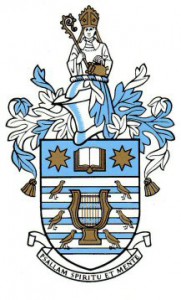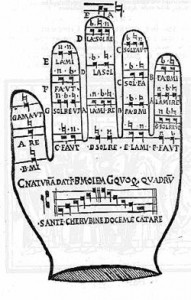The Choir of Men & Boys has been disbanded as of 16 September 2020. The Choir of Men & Boys pages are left here as a historical record.
Saint Stephen’s Choir Academy offers an excellent opportunity for home–schooled boys in the Timonium/Mays Chapel area to obtain a rigorous musical education.
Overview
Under the tutelage of an accomplished Peabody Conservatory graduate, boys aged 8 through 18 are taught to read and write musical notation following an internationally recognized curriculum (see below). They quickly become proficient singing in several languages, including English, Latin, German, and French. (They may not become proficient in speaking all these languages, but their diction and pronunciation will be impeccable.) The choir’s musical repertory spans several centuries, from mediæval plainsong chant to Palestrina, Bach, Mozart, Bernstein, right through to music composed this century. This repertory is the same used at major Men & Boy Choir institutions around the world, such as Saint Thomas Church, NY; King’s College and St John’s College, Cambridge; and New College, Oxford. The anthems the choir sings regularly show up at concerts and on recordings by such groups as The King’s Singers, Chanticleer, The Tallis Scholars, and The Sixteen. Unlike most music education courses (even those in public and private schools), which tend to be passive (listening to recordings, reading textbooks, and, rarely, attending concerts), music education in a choir includes active training: through participation in regular performances, boys become intimately familiar with the styles of different composers and periods, and they become more discerning in their appreciation of music, and music performance, in general.
The RSCM Curriculum
Saint Stephen’s Choir Academy follows the Royal School of Church Music (RSCM) curriculum. In addition to singing a broad selection of the world’s best choral music, the boys are trained in solfège (an aid to sight singing; see below), musical notation, music theory (including harmonic analysis and an understanding of chord progressions), and music analysis (focusing on the structural aspects of music, such as counterpoint, and standard compositional forms).
The RSCM curriculum includes a series of formal tests, which mark a boy’s graduation to successively higher levels of understanding. These increasing levels are marked by the different colored ribbons which the boys wear during services, and by increasing levels in the boys’ stipends. (Oh, did we mention that the cost to families is negative? See below.)
Solfège, or “Do-Re-Mi”
Remember “Do-Re-Mi”, the song in The Sound of Music, where Maria teaches the Von Trapp children to sing? Rogers and Hammerstein didn’t make up those names for notes. They were originally invented by a Benedictine monk named Guido d’Arezzon at the beginning of the 11th Century. (Actually, he used “ut” instead of “do”, and he didn’t have “ti”. His system has been modified over the centuries.) This system, which aids the singer in understanding intervals between notes—and thus facilitates sight singing—is used the world over in music conservatories and university music departments. (The ability to sight sing using solfège is common graduation requirement a many major music institutions, even for instrumentalists.)
Tuition and Stipends
Unlike similar music education and training programs around the region, Saint Stephen’s Choir Academy’s $1,500 tuition is subsidized by 8 full-scholarships and 8 half-scholarships. As a result, many boys in the Saint Stephen’s Choir Academy receive an extensive classical music education at no cost to their families. The primary factors in admission are musical aptitude and a strong interest in music and choral singing. The strong interest is paramount, because admission entails a commitment of time: boys are expected to be on time for all rehearsals and for Sunday morning services and occasional evening services during the standard school year (September to early June). To underscore the fact that this is a professional commitment (the same commitment expected of the men of the choir), boys receive a monthly stipend commensurate with their demonstrated abilities, as evaluated by the Choirmaster based on their proficiency in performance and on the written RSCM tests. Please contact the Choirmaster for details on the current stipend amounts and details on rehearsal schedules.
What’s the Right Age?
Boys can gain admittance to the Choir as early as age 8. The basic prerequisites are the ability to read English, and the ability to match pitch. Boys will gain the education and training necessary to become proficient musicians through thrice-weekly rehearsals and weekly performances. The earlier a boy joins the choir, the more productive he will be, and the more he will benefit from his education and training. Boys usually continue singing into their high school years, after their voices break. They simply transition from singing treble (soprano) to singing one of the men’s parts (alto, tenor, and bass) as their adult voices settle. Thus, the boys’ understanding of the repertory continues to increase as they re-learn familiar works from a different point of view. This continued participation puts boys in a good position to continue singing in ensembles when the go to college. (Boys who go to college locally often manage to continue singing in the choir during their college years.)





Leave a Reply